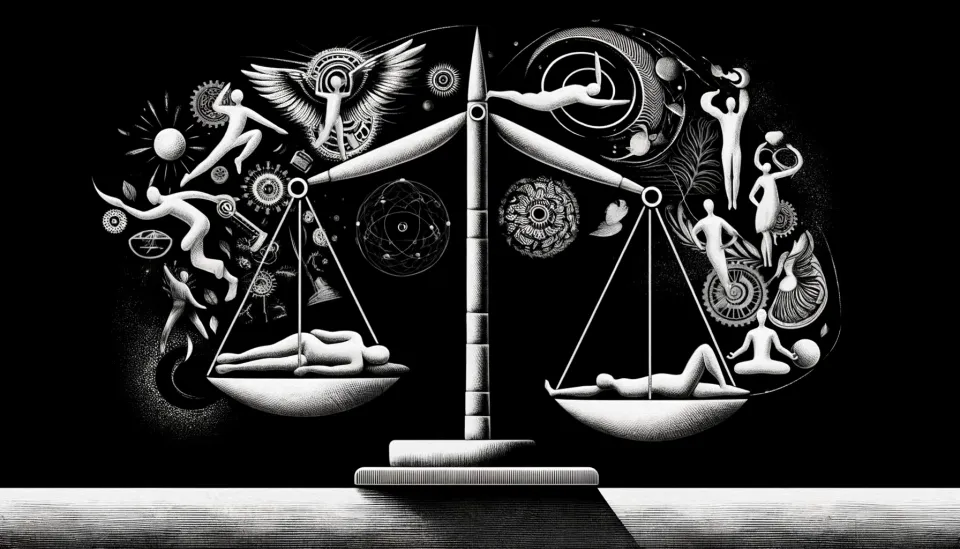Calories In, Calories Out a Myth?

Calories in, calories out—sounds simple, right?
Yet, this seemingly straightforward formula sparks endless debates in health and fitness circles. Is it really just about the numbers, or is there more to it?
The Great Debate: Calories vs. Hormones
The clash between the "calories in, calories out" approach and the hormonal theory of weight management is fierce.
While some insist that managing weight is as simple as monitoring calorie intake, others argue that this view oversimplifies complex hormonal interactions that can significantly impact our metabolism.
Here’s the truth: neither side is entirely right or wrong.
Understanding the Basics
Calories in vs. calories out, or CICO, is an abbreviation often used to summarize the Energy Balance Equation:
- Energy in (what you eat)
- Energy out (what you burn through activities and bodily functions)
- Changes in body stores (how your body mass changes over time)
This equation is deceptively simple.
It includes everything from the basic act of moving to the intricate dance of hormones and metabolism happening beneath the surface.
Beyond Black and White: The Gray Area of CICO
CICO is not just about eating less and moving more. It’s about understanding how various elements of your lifestyle, such as sleep quality, stress levels, and even the types of foods you eat, affect your overall energy balance.
Here are a few common scenarios where CICO might seem misleading:
- The Sudden Weight Gain: You haven’t changed your eating habits, but your scale is creeping up. Factors could include hormonal changes, medication effects, or decreased physical activity.
- The Hormone Hypothesis: Hormonal imbalances, like those experienced during menopause or from thyroid issues, don't cancel out CICO but influence how your body uses energy.
- The Low-Calorie Conundrum: Eating 1,000 calories a day but not losing weight? It's possible you’re underestimating intake or overeating on weekends, which skews the average.
- The Plant-Based Paradox: Switching to a diet rich in whole, plant-based foods might lead to weight loss not because plants have magical properties, but because they generally contain fewer calories and more fiber, filling you up faster.
Calorie Calculators: Tool or Trap?
Relying solely on calorie calculators can be misleading.
They provide estimates based on averages, which can be off by a significant margin due to individual differences in metabolism, inaccuracies in food labeling, and differences in how we absorb nutrients.
Applying CICO Wisely
Instead of getting hung up on numbers, focus on broader lifestyle changes that can positively affect your energy balance:
- Improve sleep quality to manage hunger better.
- Incorporate stress reduction techniques like meditation or yoga.
- Adjust the timing and quality of your meals to enhance satisfaction and fullness.
- Consider activity levels and find ways to include more movement in your day.
Takeaway: A Balanced Approach
In essence, understanding and applying the principles of CICO involves looking at the big picture and making informed choices that align with your personal health goals and lifestyle.
It’s not just about counting every calorie but understanding how each component of your lifestyle affects your overall energy balance.
Reflection:
Think about the past week:
- When did you feel most energized? What had you eaten, and how active had you been?
- Identify one small change you can make this week to improve your energy balance. It could be as simple as swapping a snack for a healthier option or taking a short walk during your lunch break.
Embrace a holistic approach to health, and remember, small changes can lead to big results!